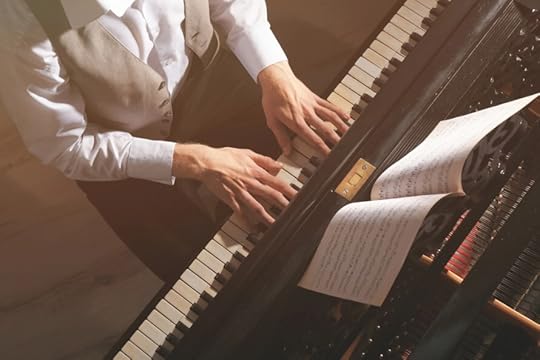Greene Music and the Strange Freedom of Letting the Piano Go After Learning Its Language

The polished keys gleam, promising a world of sonic possibilities, yet the initial encounter with the piano often feels like entering a realm governed by strict laws. Hours are spent meticulously practicing scales, each finger assigned its precise territory, a discipline that can feel more like confinement than creation.
It’s in these early stages, grappling with the fundamentals, that the journey into greene music truly begins for many, a path marked by both frustration and the burgeoning hope of fluency. The instrument, initially an imposing structure, demands obedience; its language is a series of cryptic symbols waiting to be deciphered. Yet, within this perceived restriction lies the seed of an unexpected liberation, a freedom that blossoms only after the grammar of the instrument has been absorbed.
The connection that gradually forms transcends mere technical skill, evolving into an intimate dialogue between musician and instrument, hinting at a release that comes not from abandoning the craft but from mastering its very essence.
The Grammar of Keys: Decoding the Piano’s LanguageLearning the piano is akin to immersing oneself in a new language, complete with its syntax and vocabulary. Scales become the alphabet, chords the words, and rhythm the cadence of speech. Initially, progress feels laborious, each note a conscious decision, each phrase a carefully constructed sentence.
Music theory acts as the grammar book, revealing the underlying structures that govern harmonic relationships. The early stages are often characterized by rote memorization, the fingers painstakingly trained to execute patterns. Just as a language learner stumbles over verb conjugations, the aspiring pianist grapples with awkward fingerings and uneven tempos.
However, with persistent effort and the guidance of knowledgeable instructors, these elements begin to coalesce, moving from deliberate application to a more ingrained understanding. The availability of quality instruments, perhaps found through establishments specializing in piano rental in San Diego, can significantly ease this initial, often challenging, phase of decoding the piano’s intricate language.
Finding Your Voice: Beyond Technical ProficiencyThe true magic unfolds when the pianist transcends the mere execution of notes and begins to imbue the music with personal expression. This transition marks a significant step, moving beyond technical correctness to the realm of artistry. Interpretation becomes paramount, breathing life into the written score through nuanced dynamics – the subtle shifts in volume – and expressive phrasing – the shaping of melodic lines.
Just as mastering a spoken language allows one to articulate complex ideas and emotions, understanding the piano’s fundamental grammar provides the foundation for creative departures. The musician begins to tell their own stories through the instrument, their style emerging from a deep understanding of its capabilities.
This is where the learned language truly comes alive, infused with the player’s unique emotional landscape, transforming notes on a page into a deeply personal narrative.
The Paradox of Release: Letting Go to Connect DeeperA curious paradox emerges in the journey of musical mastery: sometimes, to connect with music on a profound level, one must learn to let go. Clinging too tightly to the instrument or feeling compelled to constantly perform can inadvertently create a barrier to deeper understanding. There’s a unique freedom in stepping away from the keys, allowing the learned language to resonate internally, to become a part of one’s inner world rather than a perpetually externalized skill.
Think of seasoned musicians who may have periods of less active playing but whose connection to music remains vibrant and deeply ingrained. This conscious release can foster a renewed sense of creativity, allowing for fresh perspectives and a more profound appreciation when the musician returns to the instrument. It’s in these moments of detachment that the internalized language can truly blossom.
The Practicalities of Passage: Considering Piano Rental in San DiegoNavigating the different stages of learning and engaging with the piano often involves practical considerations, and in this context, the option of piano rental San Diego presents a valuable flexibility. Renting an instrument can be particularly beneficial during the initial learning phases, allowing aspiring musicians to explore their interest without the significant commitment of a purchase. It also provides the opportunity to experiment with different types and sizes of pianos, discovering which best suits their developing technique and preferences.
Furthermore, for individuals in transitional living situations or those who may have fluctuating engagement with playing, rental offers a convenient and adaptable solution. This accessibility allows individuals to immerse themselves in the language of the piano at their own pace and on their terms, embodying a sense of freedom within their musical exploration.
ConclusionThe journey of learning the piano transcends the acquisition of mere technical skill; it is a transformative process of internalizing a language. What begins as a series of seemingly restrictive rules and exercises ultimately blossoms into a profound form of personal liberation. The “grammar” of the keys, once diligently studied and absorbed, becomes an intrinsic part of the individual’s expressive capacity.
Even during periods when one might step away from actively playing, the understanding and deep appreciation for the instrument’s voice remain, woven into the fabric of their being. The initial constraints give way to an enduring melody within, a constant source of inspiration and connection.
Ultimately, the act of mastering the piano’s language and then learning to release the need for constant externalization reveals the profound and lasting power of music in shaping and enriching the human experience.
The post Greene Music and the Strange Freedom of Letting the Piano Go After Learning Its Language appeared first on Geek Mamas .



